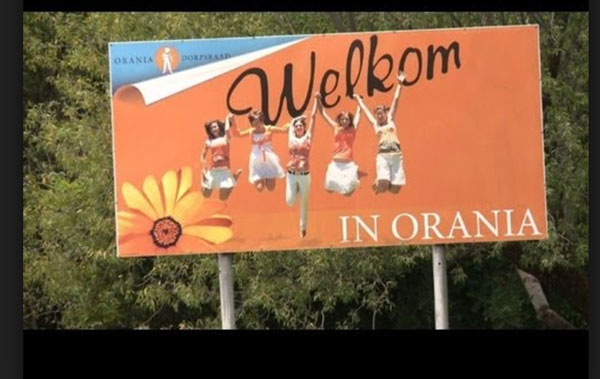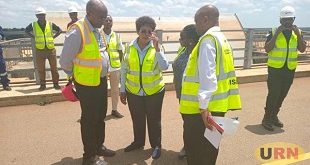
Johannesburg, South Africa | AFP | A whites-only enclave in South Africa has resisted the country’s multi-racial reality for more than two decades, even adopting its own paper money in its bid to promote self-sufficiency.
Now Orania, a town of 1,400 established during the dying years of apartheid and protected by the constitution, is looking to take its “ora” currency digital.
Orania was created by Afrikaners on private land in 1991 ahead of the dawn of democracy and its residents are mostly white farmers or traders. The town maintains its unique racial makeup by vetting and interviewing prospective residents.
If Orania’s audacious plan goes ahead as expected, the “e-ora” will enter the world of virtual currencies — although it’s still a far cry from the likes of cyber-money giant Bitcoin.
Strictly speaking the ora is not a full currency, but serves as a token or voucher.
It was introduced in 2004 to promote local spending, with users enjoying discounts when they use the local coupons.
Although Orania does not insist on payments in ora, the town profits from every sale of its currency by holding the deposited rands in an interest-bearing account.
The ora is not officially sanctioned by the South African Reserve Bank, but residents can currently exchange South African rands for physical ora at the town’s self-styled “central bank” at a rate of one-to-one.
By going electronic, Orania — where 97 percent of residents are white compared to just one in 10 nationwide — will take its first steps into the booming world of digital cash.
The market for virtual currencies is thought to be worth billions of dollars, but critics argue they help drug and arms dealers and people traffickers.
“What we plan to do is to digitise the existing physical ora and replace it with an electronic one,” said Dawie Roodt, chief economist at the Efficient Group, a financial consultancy hoping to help the town reduce the transaction costs of the paper ora.
“If you can reduce the cost of the transaction, you can boost economic activity quite substantially.”
– ‘Significant technological changes’ –
The paper vouchers will continue to circulate alongside the cyber cash, but unlike the physical “banknotes”, the e-currency will have no expiry date.
“There are significant technological changes taking place in the financial space — like Bitcoin,” said Roodt.
If everything goes to plan, Orania could have the electronic ora in circulation as soon as mid-August.
It is hoped that the virtual cash will reduce the costs of printing the physical notes, as well as expanding the range of goods and services using the ora — helping to grow the local economy.
“I’m a young guy, I’m used to mainly doing online banking and the advantages that come with that. So if I can go further and build my own economy with that, I definitely welcome that,” Orania Movement’s James Kemp, 35, told AFP.
It was the Afrikaners who formed the backbone of the National Party that introduced apartheid, and many South Africans regard Orania’s residents as little more than latter-day bittereinders — a term used for Boer War holdouts — who rage against today’s majority rule.
But residents maintain the town is not racist, arguing that Orania is the best way of preserving Afrikaner culture and language and offers a safe sanctuary from crime-ridden neighbourhoods.
Physical ora banknotes feature the town’s emblem and an expiry date on one side and advertising space for sale to local businesses on the reverse and are often acquired as a souvenir by visitors to the town.
The town is built on 8,000 hectares (19,768 acres) of private farm, situated in the arid and desolate Karoo region, almost exactly in the centre of South Africa.
 The Independent Uganda: You get the Truth we Pay the Price
The Independent Uganda: You get the Truth we Pay the Price



